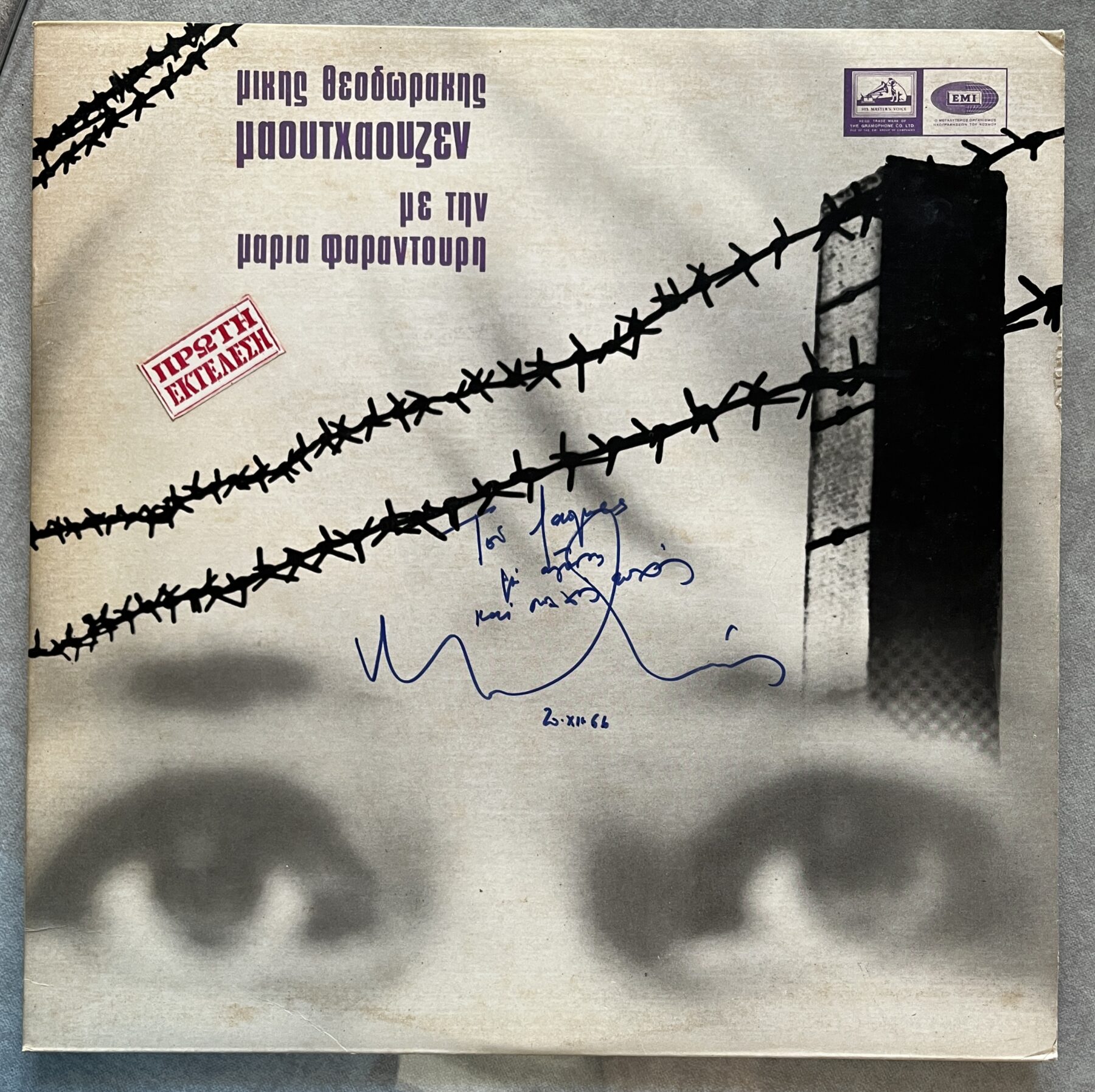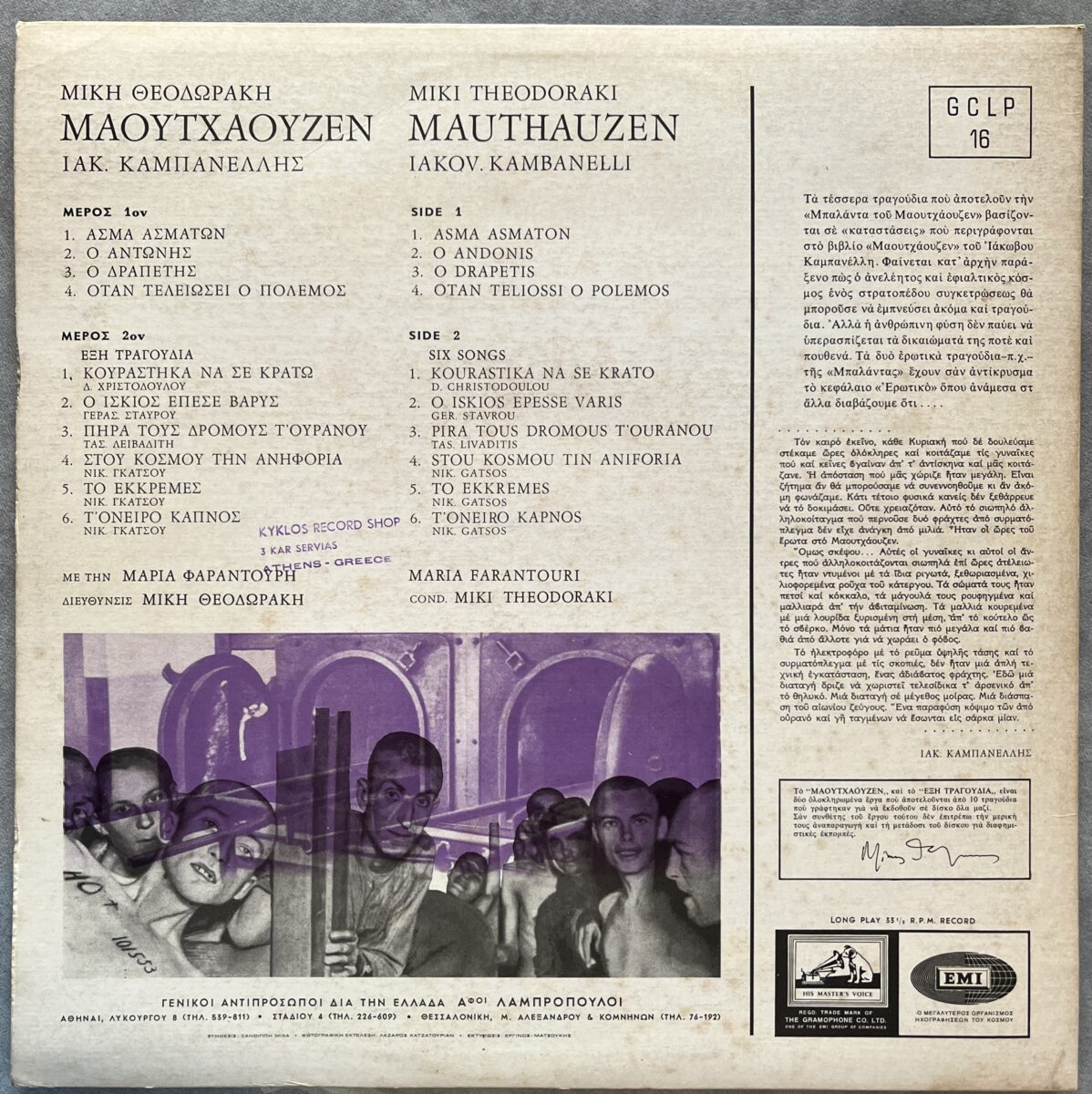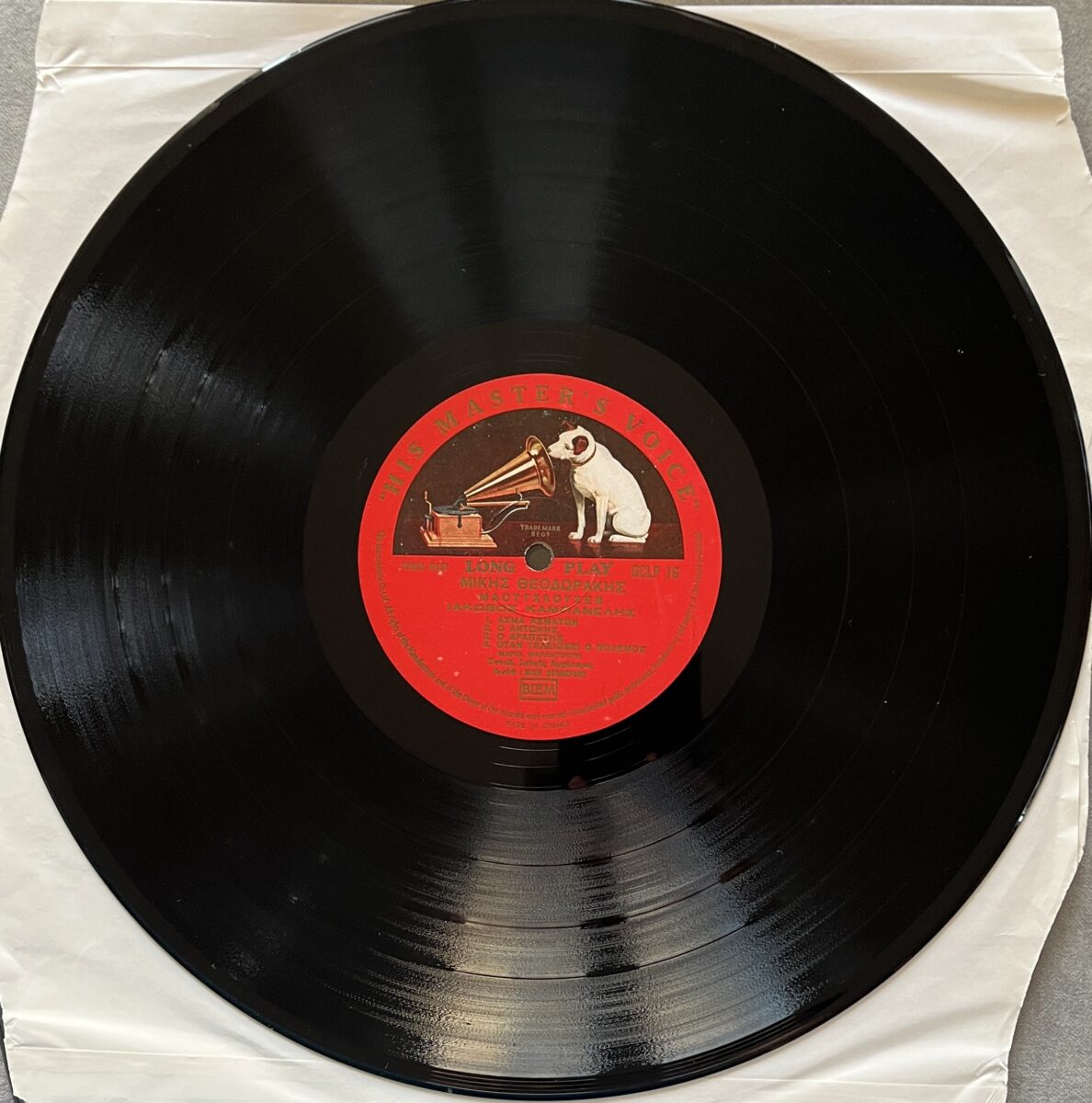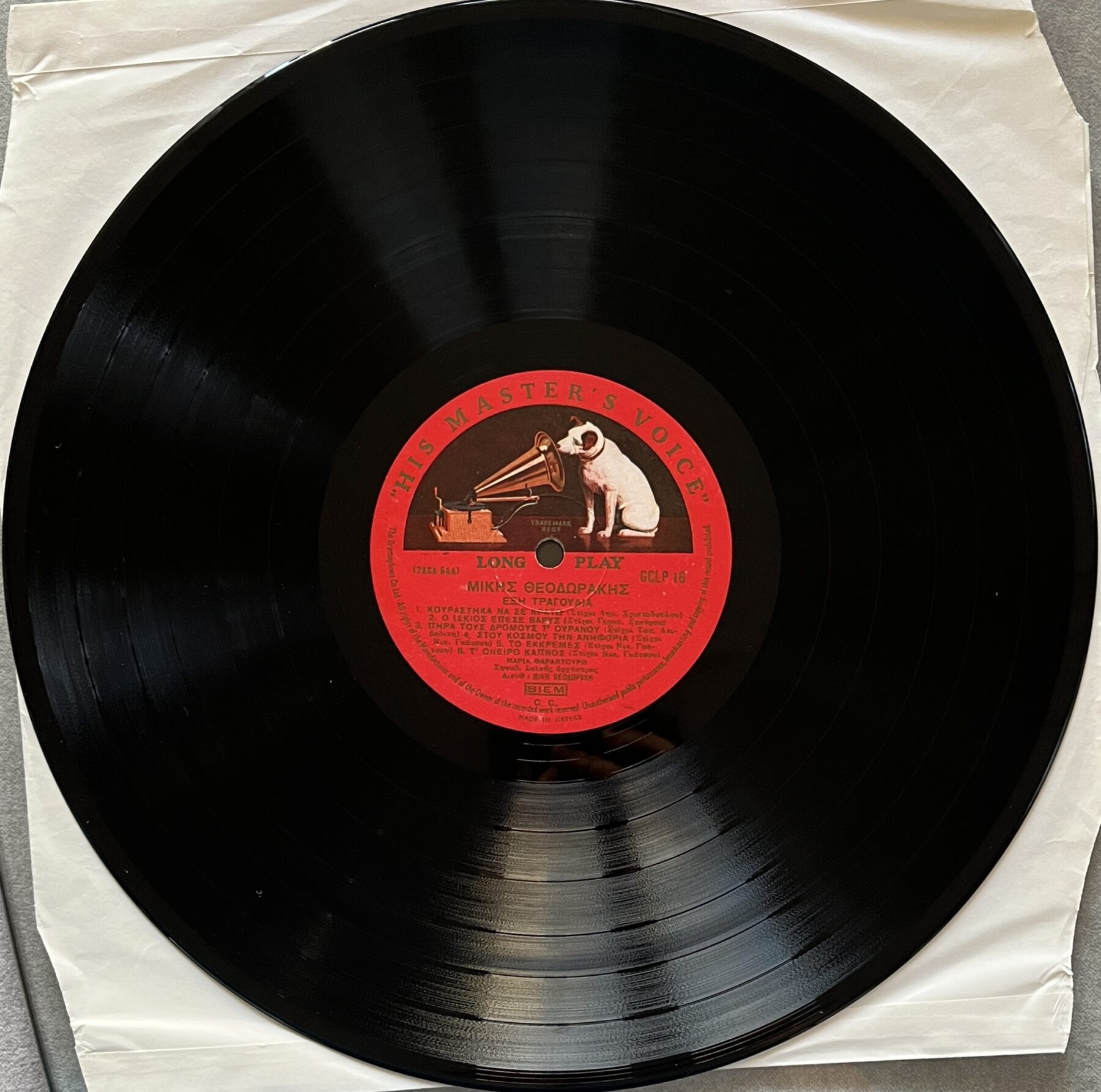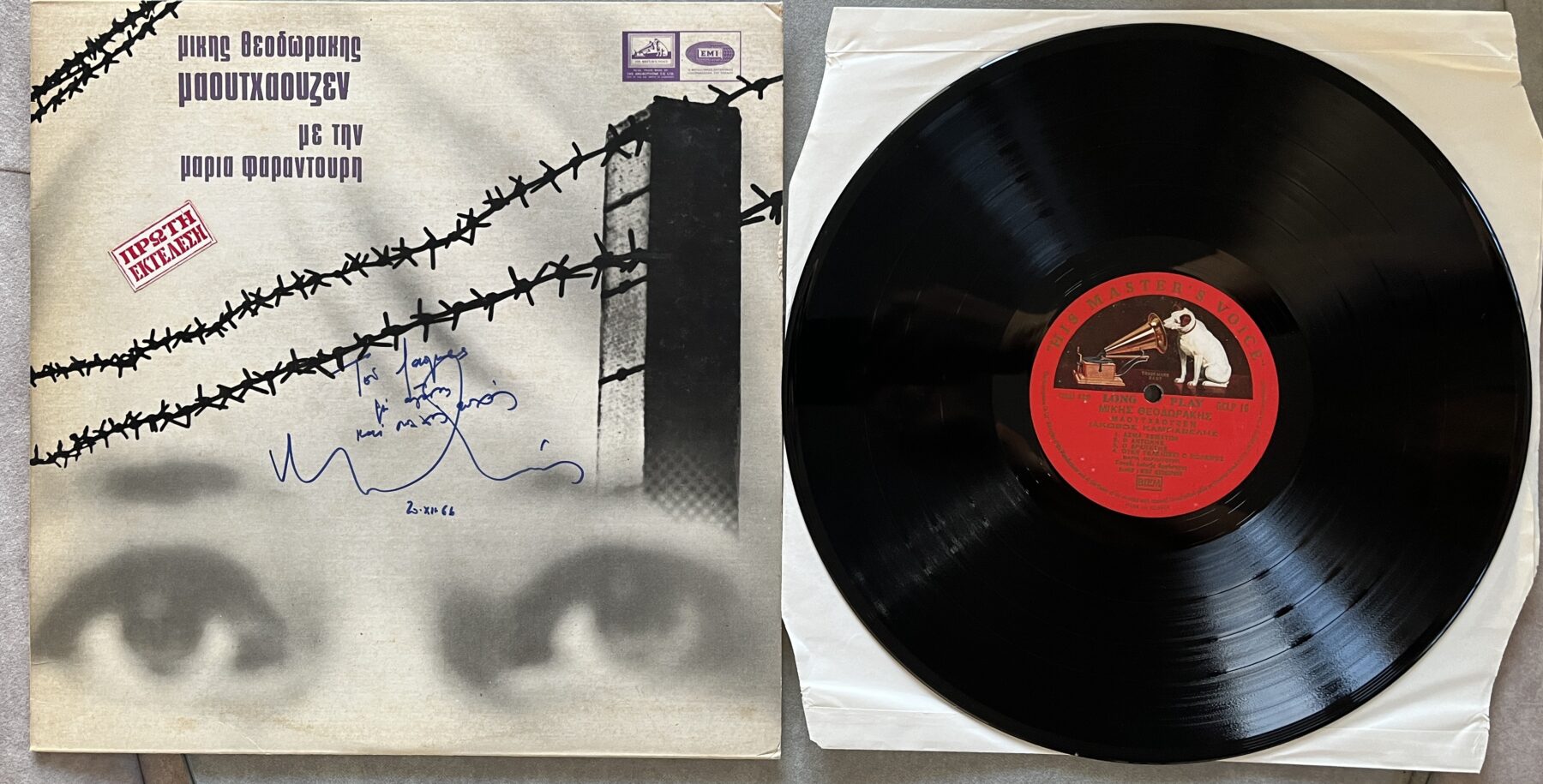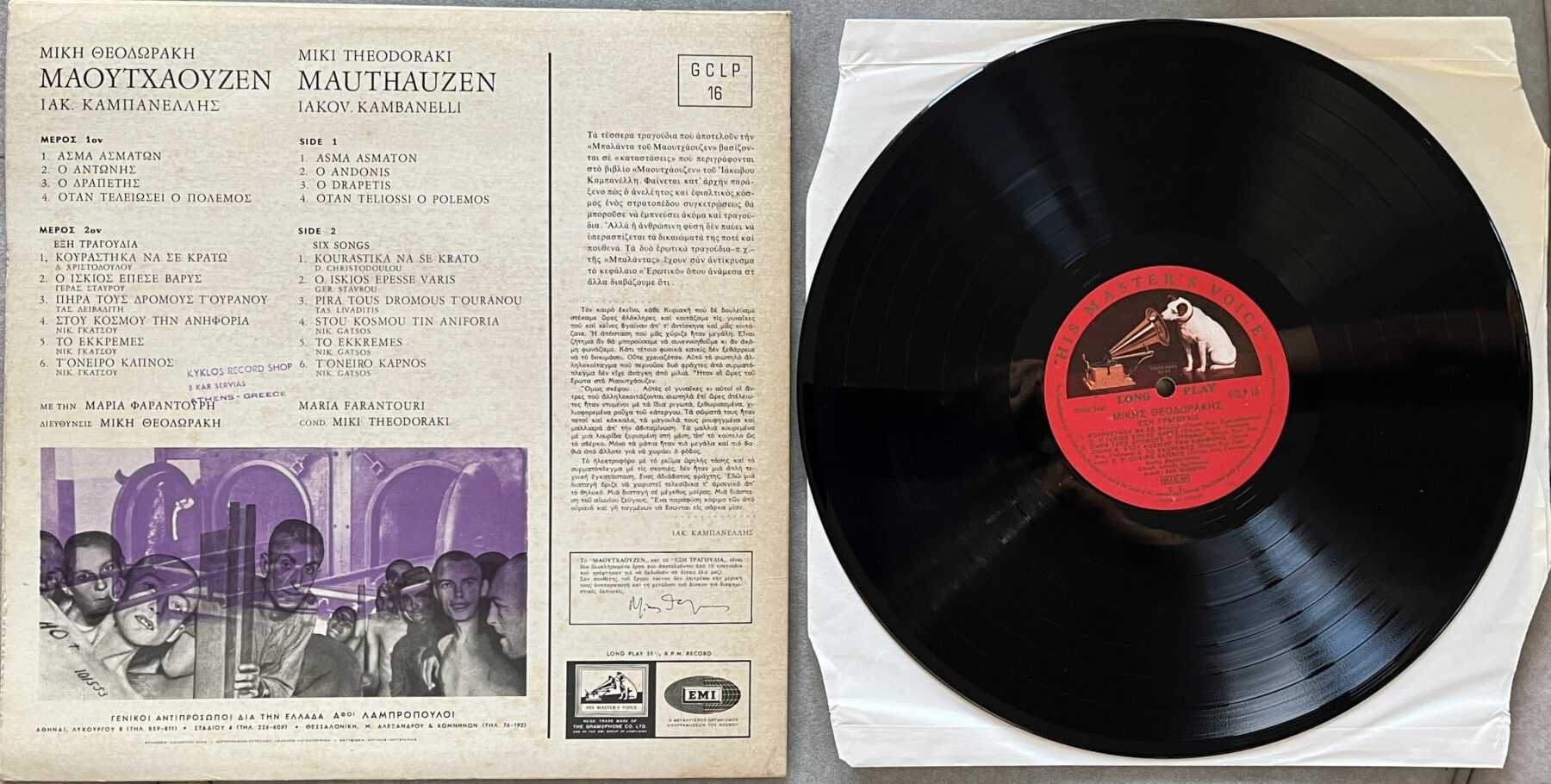Signed 1966, Mikis Theodorakis, Iakovos Kambanelis, Mauthausen, LP, 6 Songs, Maria Farantouri, First Release
160.00€
Out of stock
Description
μικης θεοδωράκης
μαουτχαουζεν
με την
Μαρια φαραντουρη
Πρώτη Εκτέλεση
Mikis Theodorakis
Mauthausen
with
Maria Farantouri
Released by His Master’s Voice in 1966
Signed and inscribed by Mikis Theodorakis
First Release
Michail “Mikis” Theodorakis (1925 – 2021) was a Greek composer and lyricist credited with over 1,000 works. He scored for the films Zorba the Greek (1964), Z (1969), and Serpico (1973). He was a three-time BAFTA nominee, winning for Z. For the score in Serpico, he earned Grammy nominations. Furthermore, for the score to Zorba the Greek, with its song “Zorba’s Dance”, he was nominated for a Golden Globe. Up until his death, he was viewed as Greece’s best-known living composer. He was awarded the Lenin Peace Prize.
The “Mauthausen Trilogy”, also known as “The Ballad of Mauthausen” and the “Mauthausen Cantata”, is a cycle of four arias with lyrics based on poems written by Greek poet Iakovos Kambanellis, a Mauthausen concentration camp survivor, and music written by Greek composer Mikis Theodorakis. It has been described as the “most beautiful musical work ever written about the Holocaust”, and as “an exquisite, haunting and passionate melody that moves Kambanellis’ affecting words to an even higher level”. The ballad is considered as possibly the greatest work of Theodorakis, while the “Song of Songs” has been described as “one of the finest songs Theodorakis has ever written”. During the premiere of his ballad in London in 1967, Mikis Theodorakis was in Greece imprisoned by the recently installed Greek military junta and his music was banned in the country.
Maria Farantouri or Farandouri (born 1947) is a Greek singer and also a political and cultural activist. She has collaborated with Greek composers such as Mikis Theodorakis, who wrote the score for Pablo Neruda’s Canto General, which Farantouri performed worldwide. During the Greek military junta of 1967–1974, Maria Farantouri recorded protest songs in Europe with Mikis Theodorakis. Her voice is contralto with two octaves. The international press called her a people’s Callas (The Daily Telegraph), and the Joan Baez of the Mediterranean (Le Monde).
Additional information
| Languages | Greek |
|---|

